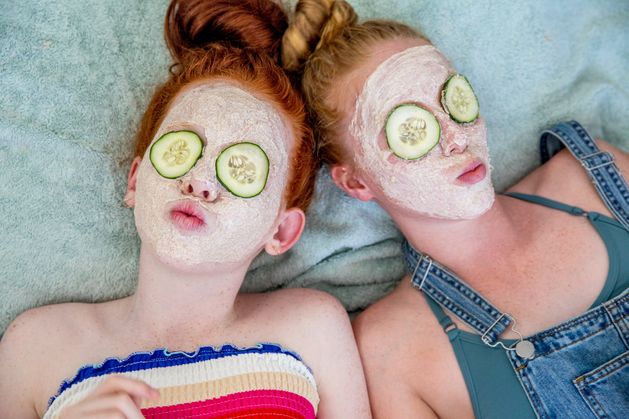Skincare Frenzy: Dermatologist Cautions Against Costly Routines for Kids
In a world where TikTok trends dominate the youth culture, the pressure on parents has escalated significantly. Leading dermatologist Professor Caitriona Ryan is sounding the alarm as more young children, some as young as nine, plead for elaborate and expensive skincare routines that are often unsuitable for their skin. With prices soaring for popular brands like Drunk Elephant, some parents are finding themselves spending hundreds of euros on products that may do more harm than good.
The Pressure of Trends
Professor Ryan, a consultant dermatologist with the Institute of Dermatologists, has witnessed a worrying trend in her practice over the past year. “Parents, or Santa maybe, are going to be asked for ridiculously priced skincare,” she stated. “Kids who are nine, 10, 11, are asking for birthdays or Christmas for a very complex and advanced type of skincare, which isn’t appropriate for their skin.”
The rise of Gen Alpha—children born between 2010 and 2024—is marked by an obsession with beauty and perfection that is largely fueled by social media platforms like TikTok and YouTube. Professor Ryan explains that these platforms have become a “God” for young tweens, promoting elaborate beauty regimes that can include up to ten different skincare steps, from cleansing to the use of essences, toners, and serums.
Distress Among Parents
As parents face mounting pressure, many express frustration and confusion over the demands of their children. “There is huge pressure on parents, and it’s ridiculous,” Professor Ryan emphasized, noting that spending €300 or €400 on skincare routines is becoming common. “They might end up making their kid’s skin worse,” she warned.
Dr. Bryan Murphy, a dermatologist at Cathedral Dermatology Clinic in Belfast, echoes her concerns. He sees a significant number of teenagers who have been using an array of products for years, many of which do not cater to the developing skin of younger individuals. “The skin cell turnover time is much more accelerated compared to a 30 or 40-plus-year-old,” Dr. Murphy explained, underscoring the risks associated with using unnecessary products at such a young age.
The Dangers of Harsh Products
Professor Ryan raises alarms about the potential consequences of introducing harsh active ingredients like alpha-hydroxy acids and beta-hydroxy acids to young skin. “There is a concern about causing damage to the skin… They can make the skin dry and irritated,” she stated, highlighting that unless a child has acne or another specific skin condition, there is little reason for them to engage in complicated skincare regimens.
Young skin is naturally resilient and capable of healing and hydrating itself. However, when subjected to numerous products, especially harsh ones, that delicate barrier can become vulnerable, leading to inflammation, breakouts, and further irritation. “Altering the skin barrier can lead to inflammation, acne breakouts and dryness,” Dr. Murphy cautioned.
Silver Linings in Skincare Awareness
While the skincare obsession presents its challenges, Professor Ryan identifies a silver lining: an increased awareness of sun protection among younger generations. “The vast majority of 20-year-olds I have in here are using sunblock every day,” she noted. This shift indicates a growing understanding of the importance of sun protection, particularly as research indicates that most skin damage occurs before the age of 18.
To protect their children without breaking the bank, Professor Ryan recommends simpler routines. “All you need at this age is to wash your face in the morning and evening and put on a sunblock daily,” she advised. She also emphasizes the effectiveness of affordable skincare products available in pharmacies, such as CeraVe and Cetaphil, which offer gentle ingredients that avoid triggering irritation.
Empowering Parents & Children
The skincare boom presents an opportunity for parents to instill healthy practices in their children while navigating the nuances of youth culture. With children so influenced by what they see online, it becomes crucial for parents to guide them towards safer, more effective skincare options.
As the beauty industry continues to capitalize on these trends, educators, dermatologists, and parents alike must collaborate to demystify the world of skincare for Gen Alpha. By doing so, children can cultivate a healthy relationship with their skin, embracing simplicity over complexity.
Parents and caregivers are encouraged to engage in conversations with their children about the realities of skincare and the importance of maintaining a healthy routine without succumbing to the pressure of social media trends.
For further reading on maintaining healthy skin for kids, check out our articles on [children’s skincare basics] and [the benefits of sun protection].
What are your thoughts on the growing trend of complex skincare routines for children? Share your experiences and join the conversation in the comments below.

